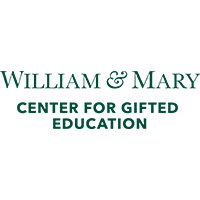Through the study of literature, art, music, and other classroom activities, students learn about the search through the ages for utopia and the struggles to grasp and maintain it on both personal and societal levels, while examining why ideas about utopia undergo change.
The Student Literature Workbook includes student activity pages that support lessons and each unit’s short stories and poems. The workbook engages students in exploring carefully selected, challenging works of literature from various times, cultures, and genres. They include:
- Letter to Student
- Model Overview
- Glossary of Literary Terms
- Vocabulary List
- Short Stories
- Poems
- Activity Pages
The Utopia Literature Workbook 1 Year License is sold separately.
- Acknowledgments
- Letter to Student
- Glossary of Literary Terms
- Models
- Activity Pages, Short Stories, Poems, and Readings
- Lesson 1: Introduction and Preassessment
- Lesson 2: Introduction to the Concept of Utopia
- Lesson 3: The Search for Utopia
- Lesson 4: “Harrison Bergeron” and Satire
- Lesson 5: Introduction to Reasoning and Community Service
- Lesson 6: Leadership and Happiness
- Lesson 7: Corruption of the Accidental Utopia: Lord of the Flies
- Lesson 8: Satire
- Lesson 9: Introduction to Research
- Lesson 10: Corruption of the Utopian Ideal: The House of the Scorpion
- Lesson 11: Hidden Utopia in “The Other Side of the Hedge”
- Lesson 12: Cultural Influences on Ideas of the Ideal
- Lesson 13: Individuality Lost: Fahrenheit 451
- Lesson 14: Utopia in Art and Poetry
- Lesson 15: Ideal Beauty
- Lesson 16: Dreams of Utopia: The Last Cuentista
- Lesson 17: Examining Life Through Quotations
- Lesson 18: Utopian Themes in Poetry and Picture Books
- Lesson 19: Individuality Lost: The Giver
- Lesson 20: Censorship
- Lesson 21: Presentation of Research
- Lesson 22: Evaluation of the Community Service Project
- Lesson 23: Journey’s End
- Lesson 24: Closing Discussion of Utopia
- Lesson 25: Postassessment of Literary Interpretation and Persuasive Writing
- Inspecting Our Own Ideas: Student Grammar Study

COLLEGE OF WILLIAM & MARY
The Center for Gifted Education (CFGE) at William & Mary University (College of William & Mary), is a research and development center providing services to educators, policy makers, graduate students, researchers, and parents in support of the needs of gifted and talented individuals.
Located in Williamsburg, Virginia, the CFGE has established an international reputation for excellence in research, curriculum development, and service. Several major grants, including funding from the Jacob K. Javits Gifted and Talented Students Education Act, have provided significant support for the work of the Center. In 2012, the Jack Kent Cooke Foundation awarded CFGE the funds needed for a summer residential camp for low income, high-ability children, for four consecutive years. In 2015, William & Mary alumni, Mike and Nancy Petters, through the Petters Family Foundation, provided additional financial support to the program. In 2016, the Petters Family Foundation has committed to fully fund the program for the next four years. Camp Launch is only the beginning of the Center for Gifted Education’s goal to bring educational equality to all gifted students.
 RETURN TO SEARCH RESULTS
RETURN TO SEARCH RESULTS
 RETURN TO SEARCH RESULTS
RETURN TO SEARCH RESULTS